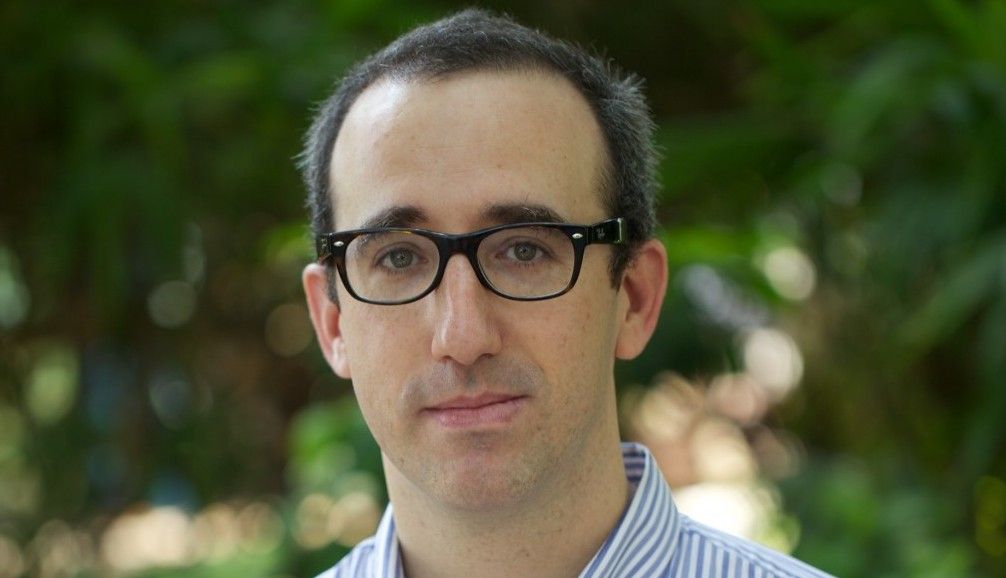Editors Note: AgFunder recently sat down with Mark Kahn, founding partner of Omnivore Partners, a VC firm investing in early stage agriculture and food technology companies in India. Mark will be a panelist on Making the Case for AgTech in the Portfolio at the Global AgInvesting (GAI) conference in NYC April 27-30.
AgFunder: You’re the founding partner of a VC that focuses on early stage ag and food technology companies. Did you have a background in agriculture?
Mark: Actually I’ve spent most of my career in agribusiness. I used to work for Syngenta, and then in 2007, I got involved with the turnaround of Godrej Agrovet, one of the largest agribusiness companies in India. I was brought in as part of the turnaround team, and oversaw key functions like strategy, M&A, R&D, and new business development. It was a great operational experience, and the company is doing amazingly well.
AgFunder: When did Omnivore come in?
Mark: While I was overseeing M&A at Godrej Agrovet, I got very interested in external innovation and started looking for startups for us to get involved with. There was a lot of early stage activity in food and agriculture, but for a large company it didn’t make a lot of sense to take individual bets off the balance sheet. At the same time it was clear that there were no other specialists focused on these startups, and generalists had barely entered the market.
The ecosystem of food and ag is about 20% of GDP and 50% of the workforce in India, and the sector is ripe with innovation and technology development. Together with a partner, Jinesh Shah, who came from generalist VC background, we launched Omnivore in late 2010. I left my role with Godrej Agrovet in April 2013 to work on Omnivore full time.
AgFunder: Can you give us a quick overview of Omnivore?
Mark: We’re a $43M fund focused on startups in India that are developing breakthrough technologies for food and agriculture. We have a fairly broad focus across the food and agriculture ecosystem, but we are still very much a sectoral. We do mostly series A and Series B rounds and have invested in 10 portfolio companies so far. All of our money has come from India. Godrej contributed 10% of our LP, and the remaining 90% came from a mix of strategic players, financial institutions, family offices, and high net worth individuals.
AgFunder: What are the prospects for Agriculture technology globally?
Mark: Agriculture historically was a relative laggard in technology adoption, even as technologies advanced in many other industries. If you look at agriculture biotechnology for last 30 years, it’s been like “we did it in human bio a decade ago and now we’re bringing it to agriculture”. A lot of what’s happening today is that agriculture is catching up on what’s new in IT, IoT, Big Data, robots, sensors, etc., building on and taking advantage of platform technologies that are now ubiquitous and cheap.
Why do we have all these ag IoT startups? Sensors got cheap, every farmer has a mobile phone, and IoT has been advanced in a bunch of other spaces for over a decade (maybe a little less), and now it’s coming to ag. Essentially you’re taking technology development and finding analogous applications. There are plenty of other industries that are benefiting from this trend, it’s not just agriculture.
AgFunder: Is that what’s driving the activity in agtech?
Mark: If we look at what’s driving the agtech boom, initially it was catalyzed by rising food prices, which made agriculture much more remunerative for farmers. As a sector, agriculture was suddenly rich, after a long period of struggle. Farmers began making substantial investments in machinery, seeds, irrigation, fertilizer, everything – farmers wanted the best of everything. Now, most commodity prices are down 50%, and you’re still seeing this tech adoption, but now it’s driven by the fact that the cost of supplying new technologies has plummeted in the last few years. Platform costs that were invested in for other industries can now be brought to ag. So you have this huge flow of capital that has more broadly hit across the ag industry globally across decade, and in the last three years it discovered agtech.
AgFunder: Can you talk more about capital?
Mark: There are more dedicated funds. For a long time, it was just Cultivian and Finistere, and now you have a bunch of funds launching and fundraising across the globe. You have players like Khosla, Kleiner Perkins, Andreessen, and Y-Combinator that have come into the space, and now they’re actually some of the biggest players. Where there are startups, capital will follow, but when there’s a lot more capital, people’s willingness to launch startups in the space increases radically. There are many more early stage deals.
AgFunder: Broadly speaking, what’s the investment thesis for agriculture?
Mark: For starters, it’s a huge market. Agriculture is one of the world’s most global industries. And technologies in agriculture tend to be applied globally. While you have countries that use GM seeds and some that don’t, things like mechanization, data, sensors, you’re really playing in a global market. I always say that agriculture has two global markets: one of smallholder farmers (e.g. India, China, SE Asia, Africa) and one of broad acre farmers (e.g. US, Canada, AUS, EU). In agriculture, you’re really dealing with a global base of customers.
Second, it’s a market that’s not super fickle. I think once you get in with farmers and other players in the agricultural system, these are people that run real businesses and show loyalty and will continue to use something that works for them for a long time. So rather than being the latest consumer fad, I think in agriculture once you make a really good product for farmers, they tend to use it, and you can make it better and better, but it’s a durable relationship. All AgTech is really B2B. Every farmer is essentially a businessman, and I think AgTech startups benefit for the same reason that people like B2B startups, because they tend to monetize faster because they’re selling to businesses.
Also, finally, people need to eat. Unless Soylent really knocks it out of the park, people are going to always need food in all its infinite varieties and there’s more and more pressure on the whole agricultural system. Every year it’s getting harder and harder, so consequently you’ve got some good macro fundamentals. For those people that are creating new agricultural technologies it’s somewhat comforting to know that the headwinds we face create business opportunities.
AgFunder: What areas of AgTech do you find the most interesting or have the most promise?
Mark: We at Omnivore tend to specialize in 6 major areas. These are the areas that are venture fundable – the areas where technology can penetrate the deepest, the areas that are most ripe for transformation, and where you can find startups that have the most upside potential. The six areas we focus in are farm mechanization and automation, sustainable inputs and biotechnology, supply chain and logistics tech, big data and information services, IoT and precision agriculture, and innovative food products and services. Our shortlist always surprises people because they’re similar areas to what folks outside of India specialize in.
AgFunder: What’s happening in India right now that’s perhaps different than rest of world?
Mark: India has some really true advantages in a lot of these spaces. We’re seeing a ton of IoT startups in India because we’ve got so many IT guys. I think we have the largest IT workforce in the world, so we see a lot of big data, IoT and precision ag deals here. Many technical and managerial professionals are originally from rural India, and when they decide to do a startup, many think about applications for rural India. Also in India we have many financial institutions that are focused on agriculture, so big banks are much more aware of agriculture than they are in the United States.
AgFunder: You’ve funded 10 companies, are these mostly focused on India or are they relevant to rest of globe?
Mark: I think the great thing about the Indian market is that it combines an element of Israeli startups with an element of Chinese startups. So, China is all about the domestic market because of censorship and language. You’ve got a massive home market, and that let’s you create big, big companies domestically. Israel is all about the global market because the home market is so small. The cool thing in India is that a lot of the startups begin by focusing on the home market but then go global.
Want to hear more AgTech insight? Mark will be talking in depth about the opportunity in AgTech at the Global AgInvesting (GAI) conference in NYC April 27-30.





